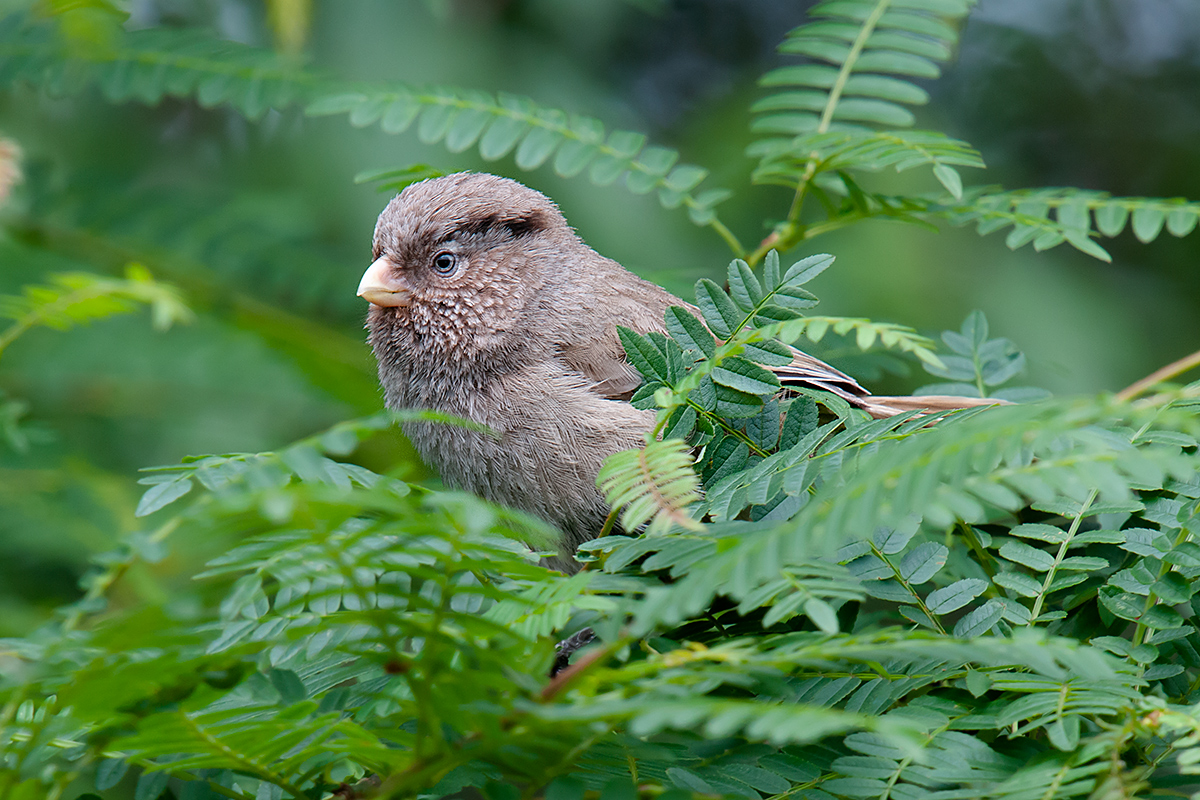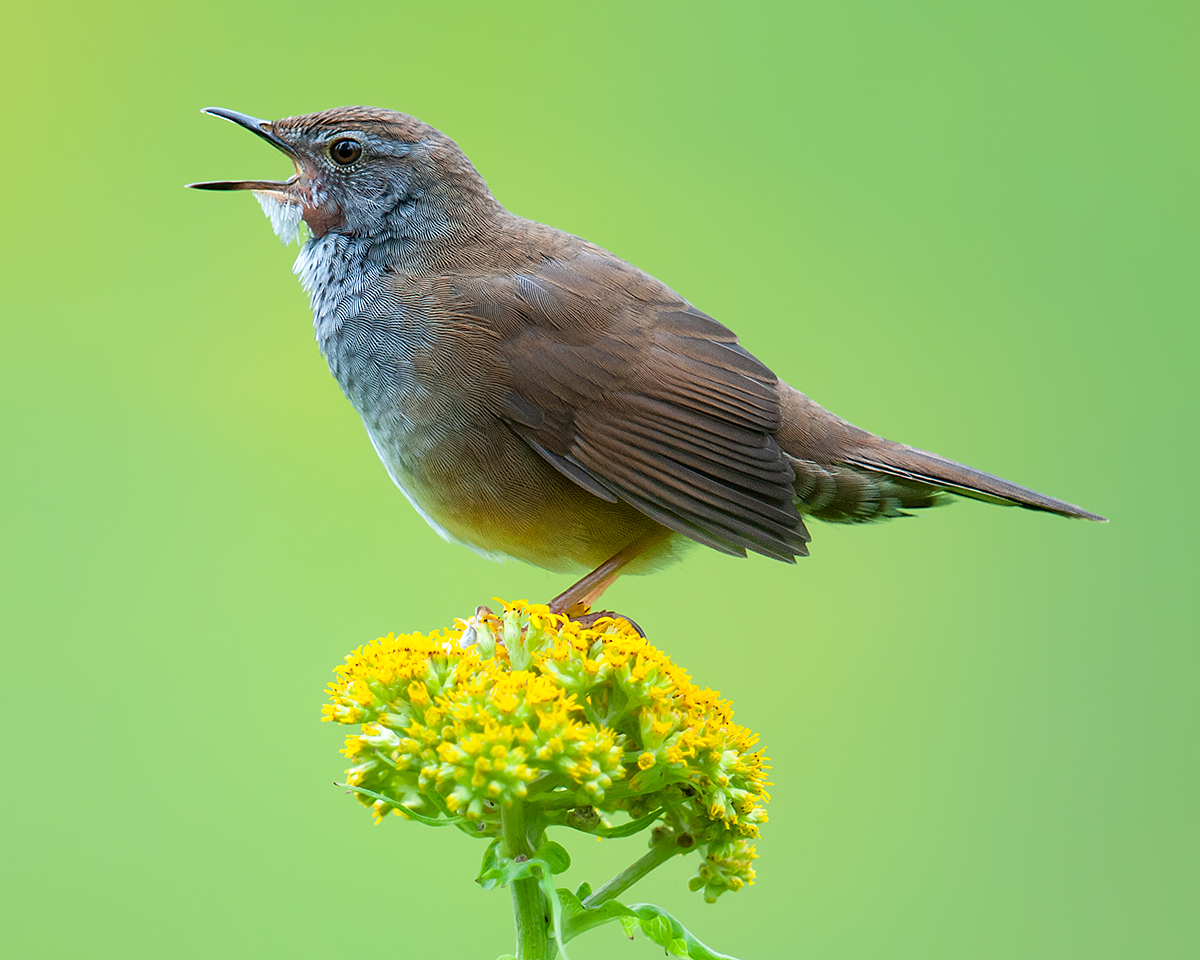
by Craig Brelsford
Founder, shanghaibirding.com
SPOTTED BUSH WARBLER
Spotted Bush Warbler Locustella thoracica inhabits Himalayas and central Chinese mountains, from southeast Tibet and northern Qinghai east across northern Yunnan to Guizhou and southern Gansu and northern Sichuan to Qin Mountains in Shaanxi. HABITAT & BEHAVIOR Thickets and dense scrub in forest glades and alpine meadows, in summer to 4300 m (14,110 ft.), lower in winter. Shy, but breeding males sing conspicuously. ID & COMPARISON Similar to Baikal Bush Warbler L. davidi and Russet Bush Warbler L. mandelli. Breeding adult rufous-brown from forecrown to graduated tail. Crown and mantle faintly scaled. Short, narrow dull-grey supercilium conspicuous before eye, fainter behind; dark eye-stripe also most distinct before eye. Ear coverts ashy-grey. Chin whitish. Lower throat and upper breast washed grey and spotted black; distinctiveness of spotting varies by individual and season (may be totally obscured in non-breeding plumage) but usually weaker than Baikal Bush Warbler. Flanks and undertail coverts tawny brown, the latter boldly scaled white. Juvenile washed yellowish below and has weaker, yellow-tinged supercilium. Brown Bush Warbler L. luteoventris lacks scaling on undertail coverts and never has grey wash on breast. Russet Bush Warbler has russet ear coverts and a less prominent supercilium. BARE PARTS Bill black; legs bright orange-pink. VOICE Song a fast, streaming trick-he-dee, trick-he-dee, trick-he-dee, the sequence repeated continuously for several minutes; delivered also in winter. Baikal, Russet, and Chinese Bush Warbler L. tacsanowskia have a very different, buzzing song. — Craig Brelsford
BAIKAL BUSH WARBLER
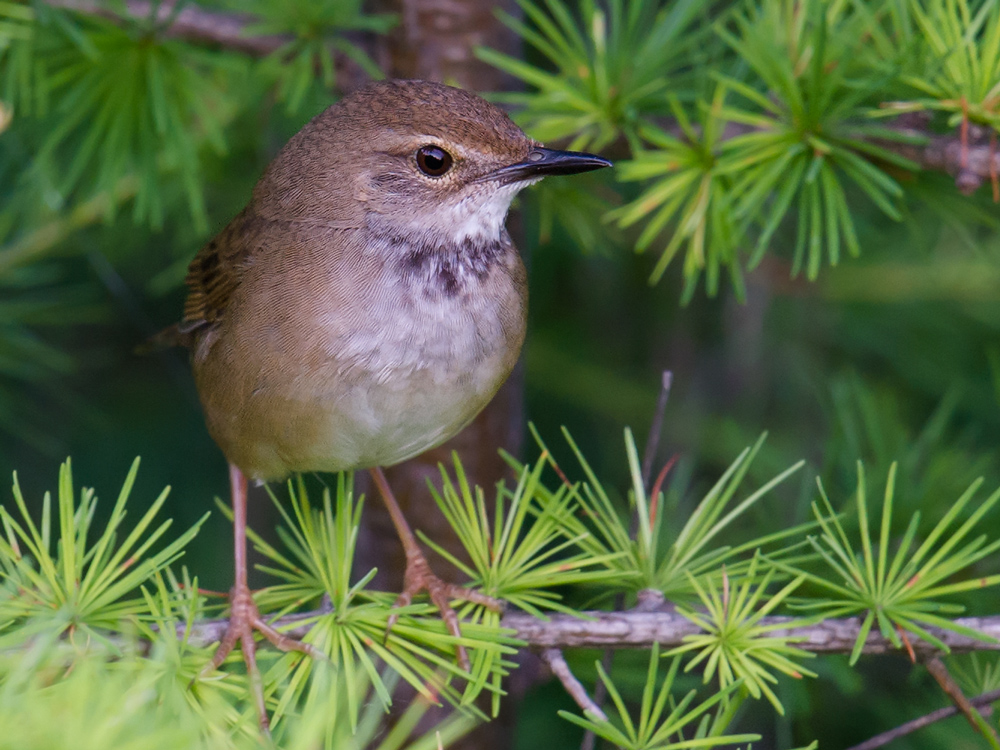
In China, Baikal Bush Warbler Locustella davidi davidi breeds in northeast provinces plus Hebei, Shanxi, Shaanxi, and Sichuan. Both davidi and Siberian breeder suschkini are rarely recorded passage migrants in China, with suschkini migrating east of Tibetan Plateau and davidi more numerous in coastal provinces. Winters Southeast Asia, rarely southeast China. HABITAT & BEHAVIOR Thickets and dense scrub in taiga glades, along streams, and at edges of fields, to 1400 m (4,590 ft.). Shy and difficult to observe. ID & COMPARISON Breeding rufous-brown from forecrown to tail, lighter than Spotted Bush Warbler L. thoracica and distinctly warmer than Chinese Bush Warbler L. tacsanowskia. Short, whitish supercilium brighter and more prominent than Spotted and Chinese. Has dark eye-stripe, lacking in Chinese and Russet Bush Warbler L. mandelli. Ear coverts dull brown (not ashy-grey, as in Spotted), contrasting little with crown and upperparts. Chin whitish. Lower throat and upper breast washed brown (not grey, as in Spotted) and streaked black; distinctiveness of streaking varies by individual and season (may be totally obscured in non-breeding plumage) but is usually stronger than Spotted and Russet and especially Chinese. Flanks washed brown. Undertail coverts dark brown and boldly scaled white (Brown Bush Warbler L. luteoventris lacks scaling). Juvenile has yellowish wash below and on supercilium. BARE PARTS Bill all-black in breeding season, yellow on lower mandible outside breeding season (Spotted all-black in all seasons); legs bright orange-pink. VOICE Song, delivered also in winter, an insect-like, raspy buzz, far different from Spotted. See sound-recording below. — Craig Brelsford
SOUND-RECORDING
Baikal Bush Warbler Locustella davidi davidi, song, Inner Mongolia, China, July (0:21; 4 MB; Craig Brelsford)
PHOTOS
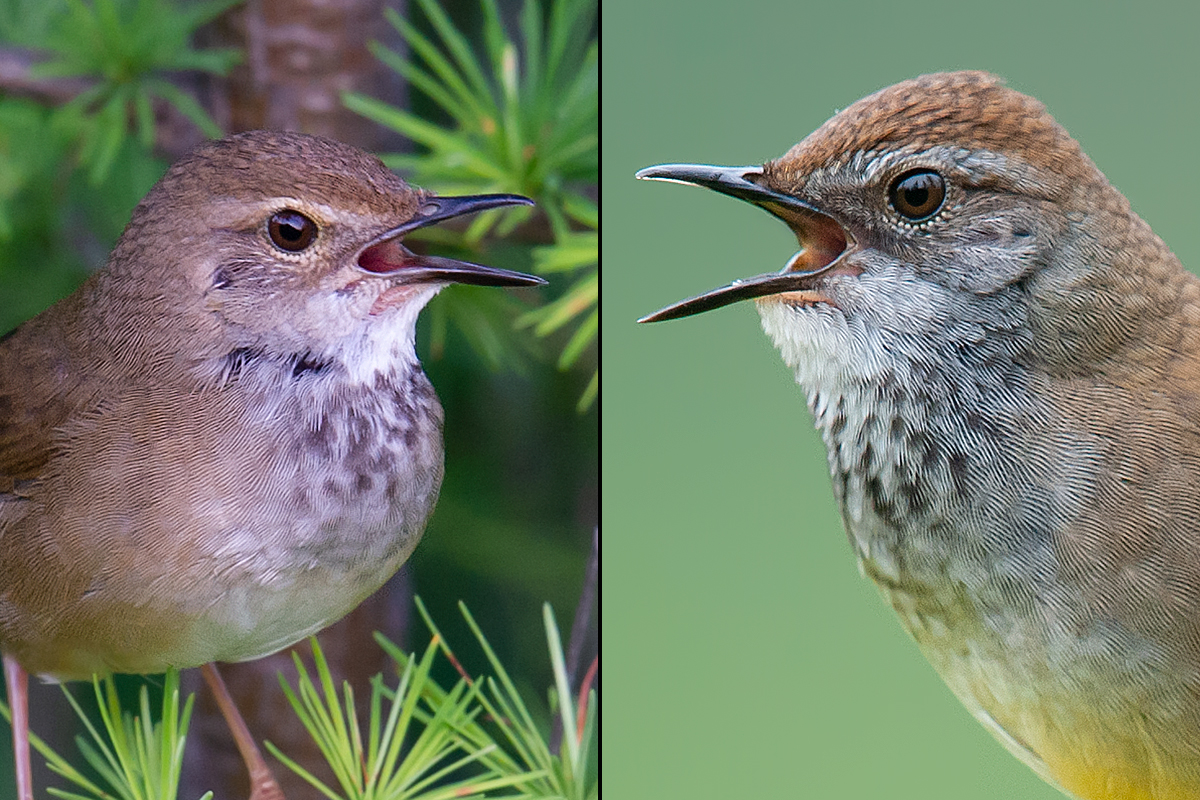
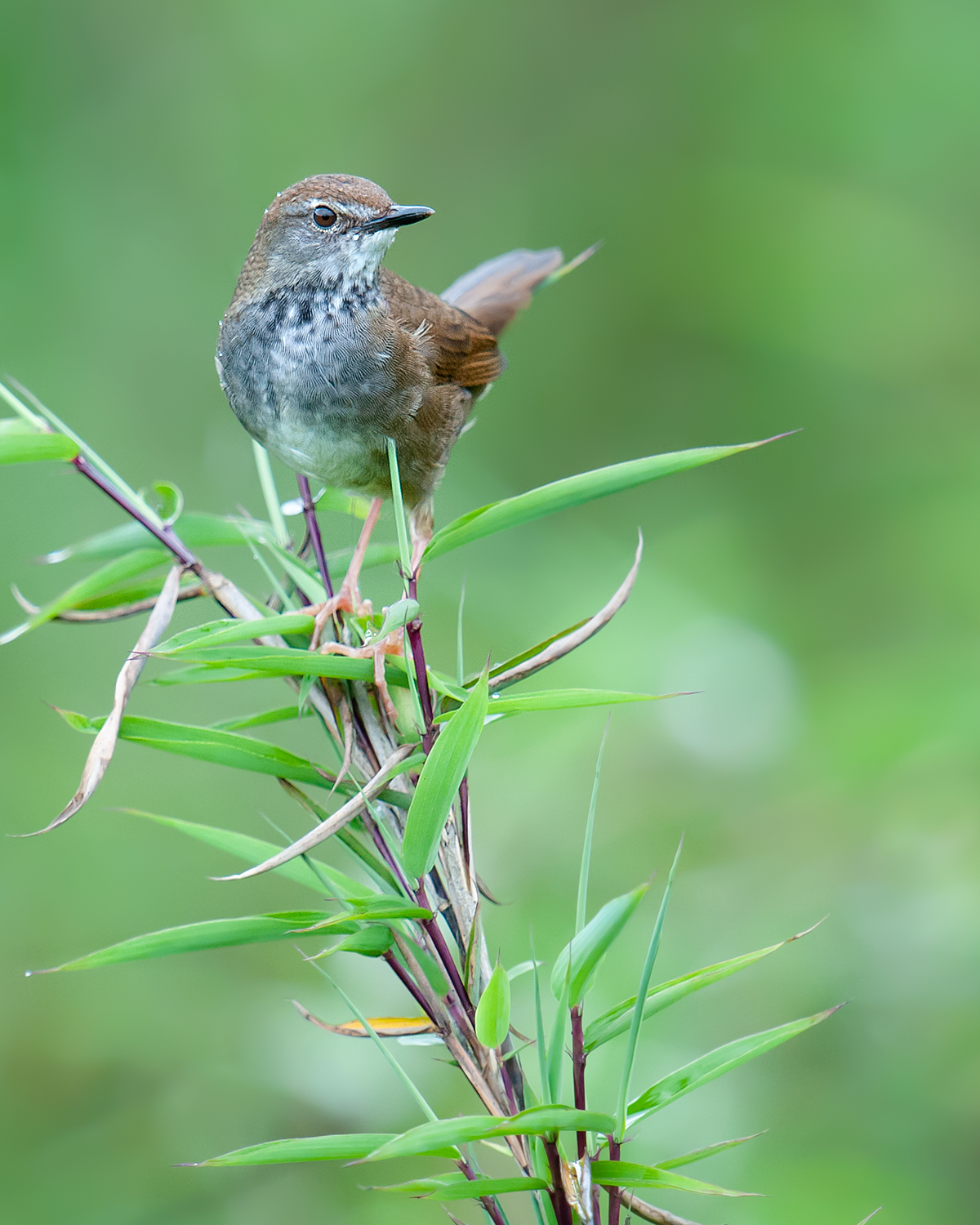
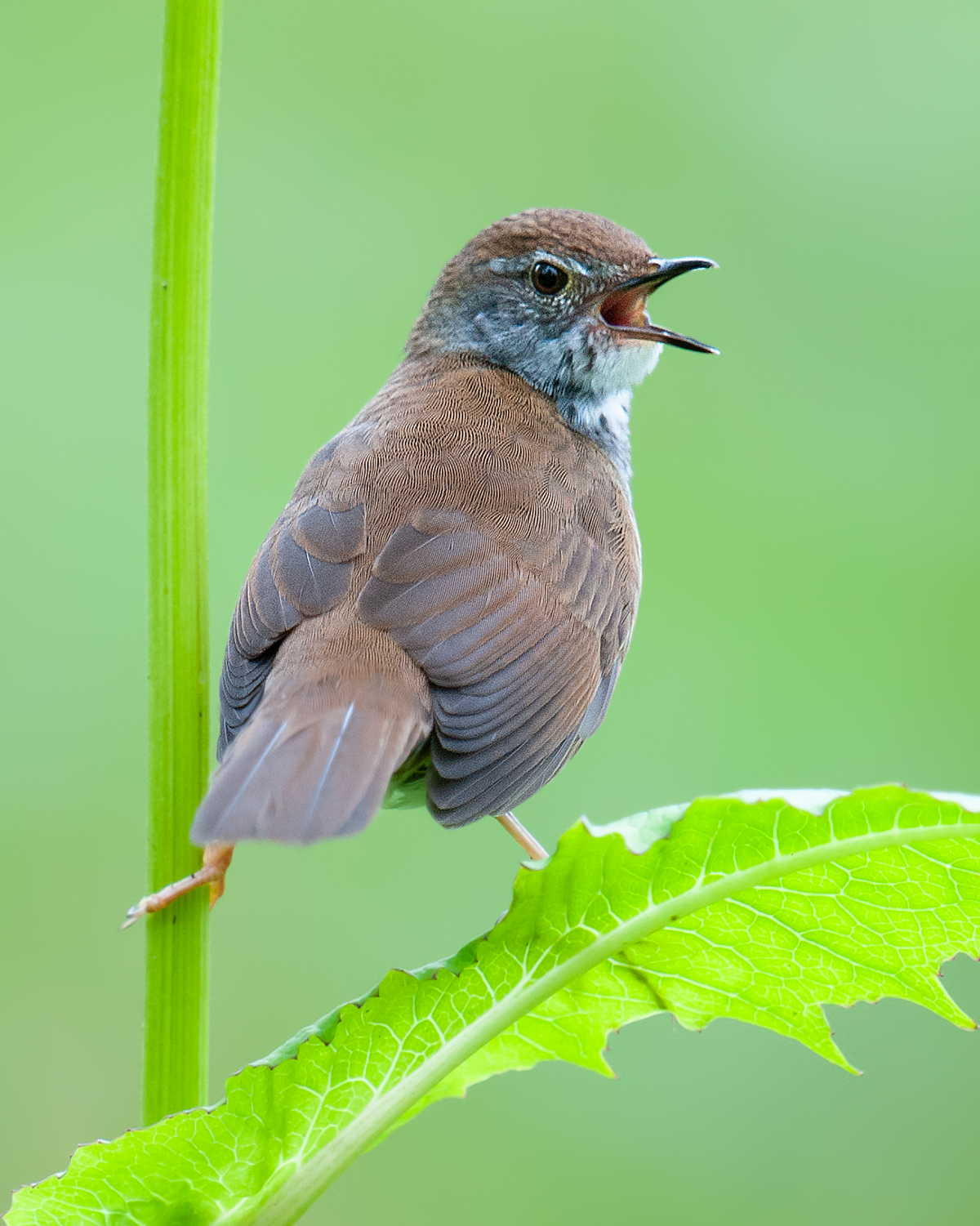
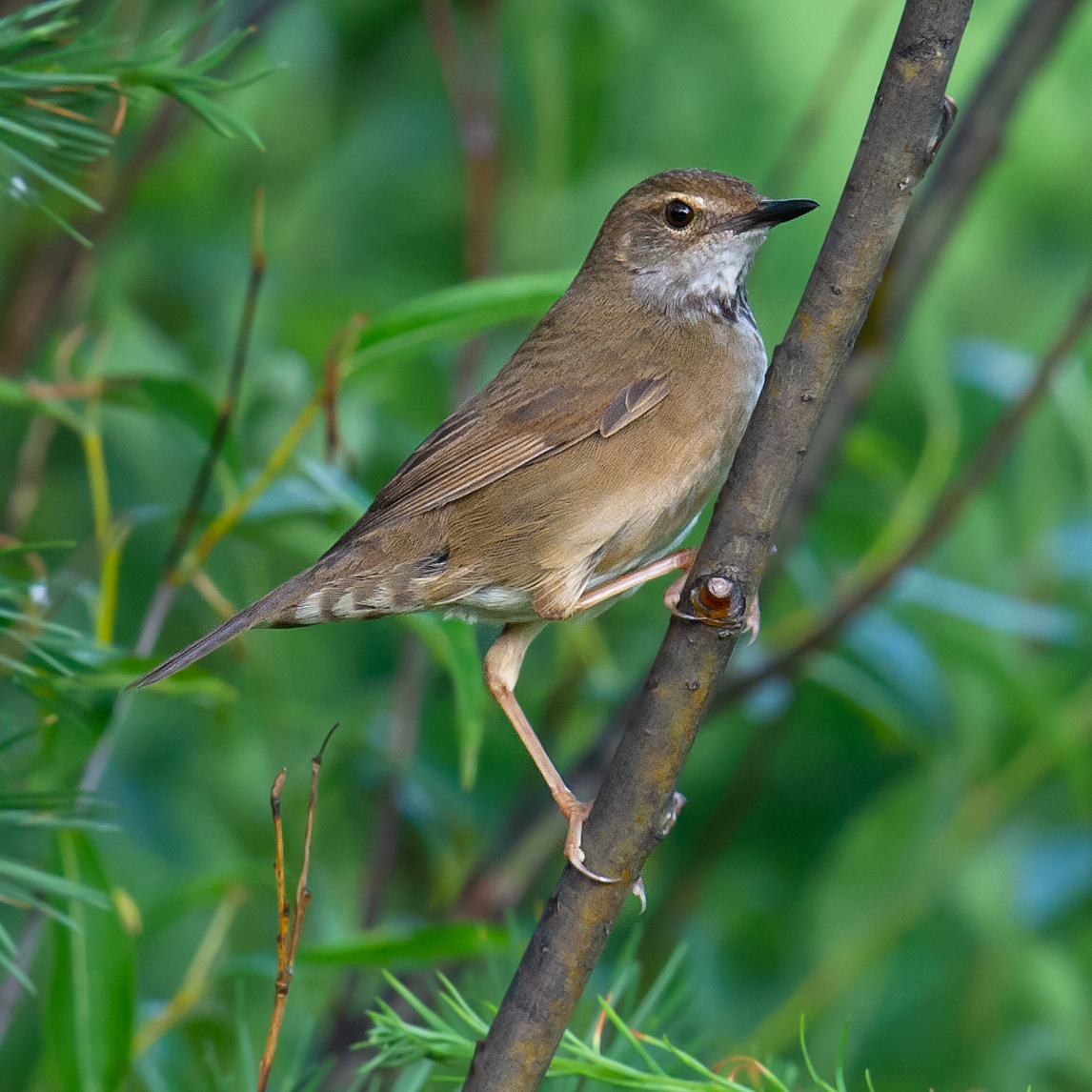
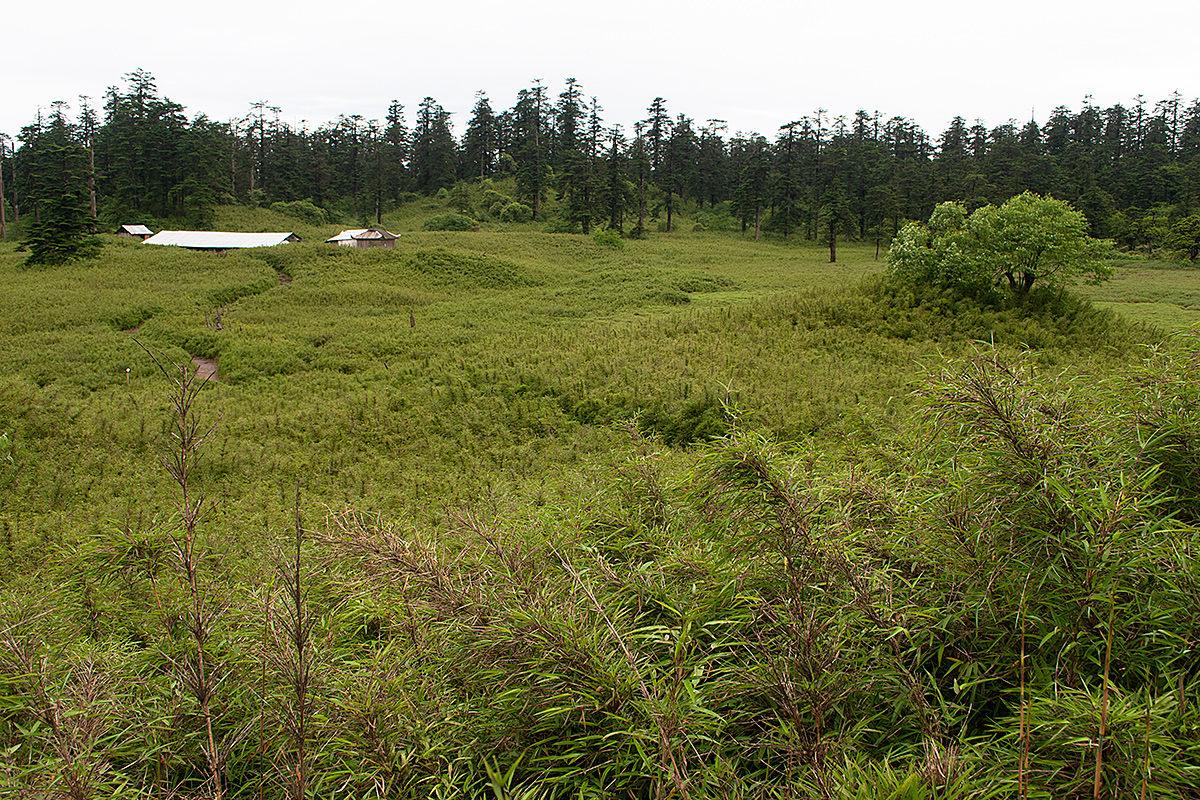
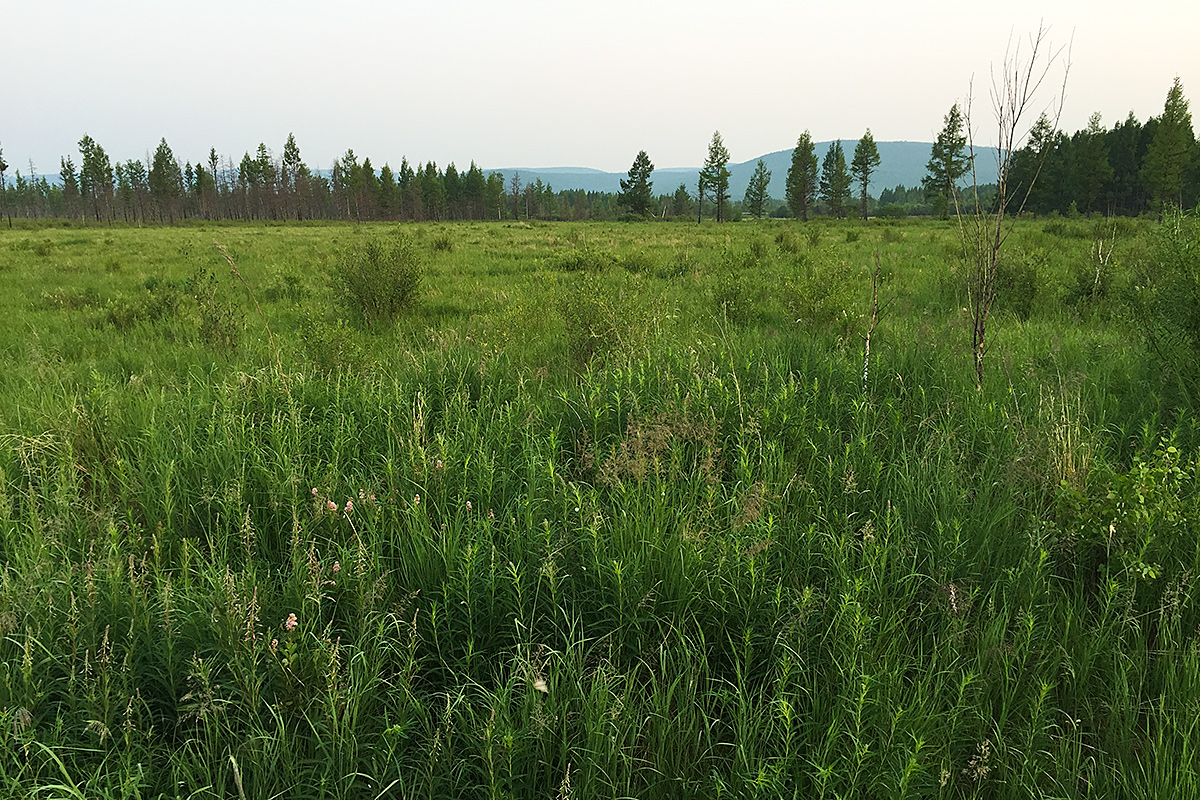
RESOURCES ON LOCUSTELLA AND HELOPSALTES WARBLERS
Click the links below for coverage on shanghaibirding.com of locustellid warblers.
Gray’s Grasshopper Warbler Helopsaltes fasciolatus
Marsh Grassbird H. pryeri
Pallas’s Grasshopper Warbler H. certhiola
Middendorf’s Grasshopper Warbler H. ochotensis
Lanceolated Warbler Locustella lanceolata
Brown Bush Warbler L. luteoventris
Sichuan Bush Warbler L. chengi
ACKNOWLEDGEMENTS
Daniel Bengtsson served as chief ornithological consultant for Craig Brelsford’s Photographic Field Guide to the Birds of China, from which the species descriptions above are drawn.
BIBLIOGRAPHY
Alström, Per, Pamela C. Rasmussen, Urban Olsson, and Per Sundberg (2008). Species delimitation based on multiple criteria: the Spotted Bush Warbler Bradypterus thoracicus complex (Aves: Megaluridae). Zoological Journal of the Linnean Society, 154: 291–307. Available at https://www.shanghaibirding.com/wp-content/uploads/2019/02/Alstrom-et-al.-2008-Bradypterus-thoracicus-ZJLS.pdf (accessed: 26 Jul 2024).
Brazil, Mark (2009). Birds of East Asia. Princeton University Press, New Jersey.
eBird (2020). eBird: An online database of bird distribution and abundance [web application]. eBird, Cornell Lab of Ornithology, Ithaca, New York. Baikal Bush Warbler in China (https://ebird.org/species/spobuw1/CN). Spotted Bush Warbler in China (https://ebird.org/species/spobuw3/CN). Accessed: 14 Oct. 2023.
Kennerley, P. & Pearson, D. (2010). Reed and Bush Warblers. London: Christopher Helm.
MacKinnon, John & Karen Phillipps (2000). A Field Guide to the Birds of China. Oxford University Press.
Madge, S.C. (2006). Family Sylviidae (Old World Warblers). Pp. 602–3 (Spotted Bush Warbler, Siberian Bush Warbler) in del Hoyo, J., Elliott, A. & Christie, D.A. eds. (2006). Handbook of the Birds of the World. Vol. 11. Old World Flycatchers to Old World Warblers. Lynx Edicions, Barcelona, Spain.
